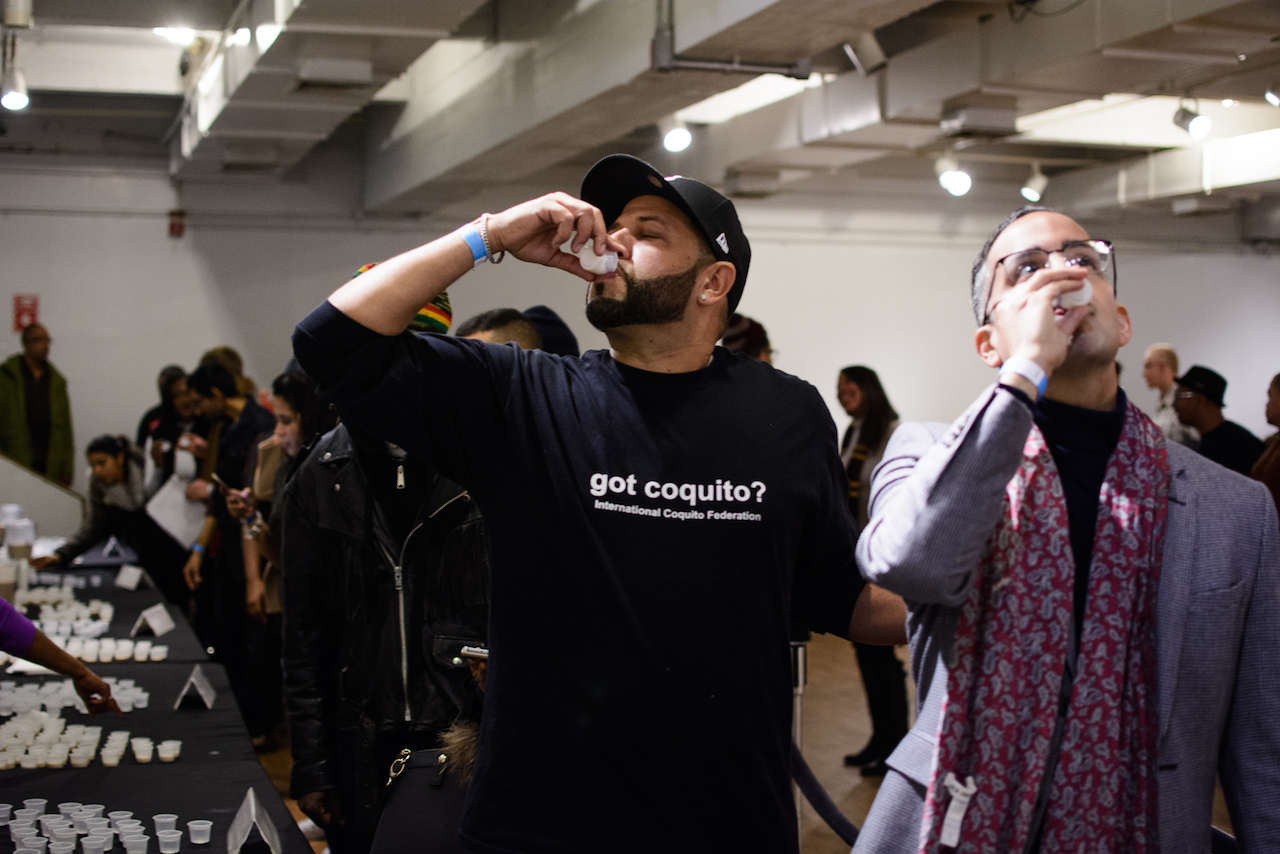
Coquito Masters, a project of the International Coquito Tasting Federation (whose mission is to “promote coquito as a culinary delight,” according to the its website), hosted its 17th annual New York State Coquito Masters Final at The Bronx Museum of the Arts on Saturday, December 16.
“This is about culinary integrity,” said Debbie Quinones, the Federation’s founder. “Now, more than ever, with everything that’s happening in Puerto Rico, we have to continue to fight for awareness.”
Coquito, a celebratory spiced rum beverage that incorporates coconut, sweetened condensed milk, cinnamon, nutmeg, and a host of other flavors, is a staple in Puerto Rican households for a holiday season that runs from October, through the end of January. Coquito Masters hosts a series competitions throughout the tristate area, Philadelphia, and Florida during the four-month season.
This year’s first place winner was Rosemary Colon, who, in addition, won the two previous titles.
“I was a little nervous,” she said. “There was a lot of good tasting coquito out there. Two of them were like the way I do mine. I was struggling with my nerves; but thank God, I made it again.”
Colon said an important part of her process was making the coquito whilst listening to marriage of Christmas and Salsa music.
“I just get into it, and I make it with love,” she said. “Everybody has their own technique; I have mine, and it works.”
For the competition, crowd feedback determines three finalists from the group of coquito aficionados, all of whom made it through two prior rounds of competition. From the final group of three, guest judges determine first, second, and third place winners.
This year, Angel Otero, a Puerto-Rican-born-and-raised painter, and Eliana J. Cruz, a writer an editor for Edible Bronx and a self-proclaimed “Boricua” were the final guest judges.
Otero said that he was in search of nostalgia in trying to name the winner, a taste that reminded him of his favorite coquito, made by his “abuela.”
“Each of them had their own specific footprint,” he said. “The winner had the best balance. Nothing was too strong, nothing was too smooth. Not too much texture. Not crazy flat.”
Cruz also celebrated the balance of Colon’s coquito.
“The use of rum is very important,” said Cruz, a Bronx-native who also describes herself as “food advocate” for the borough. “Whether it’s smooth. Whether it’s the first taste, or the aftertaste. Consistency is also very important. The texture is very important.”
Cruz, who does not make coquito herself – she said that though she is of Puerto-Rican heritage, she does not have the skill to make it: “it would be dishonest of me to try,” she laughed – said the Colon’s is the best coquito she’s ever had.
Colon said that her husband is her designated taster, and that, in addition to the competition, she is the official coquito concoctor for her family.
The pressure of crafting the best batch between the two – the competition, and her family – she said, is equal.

